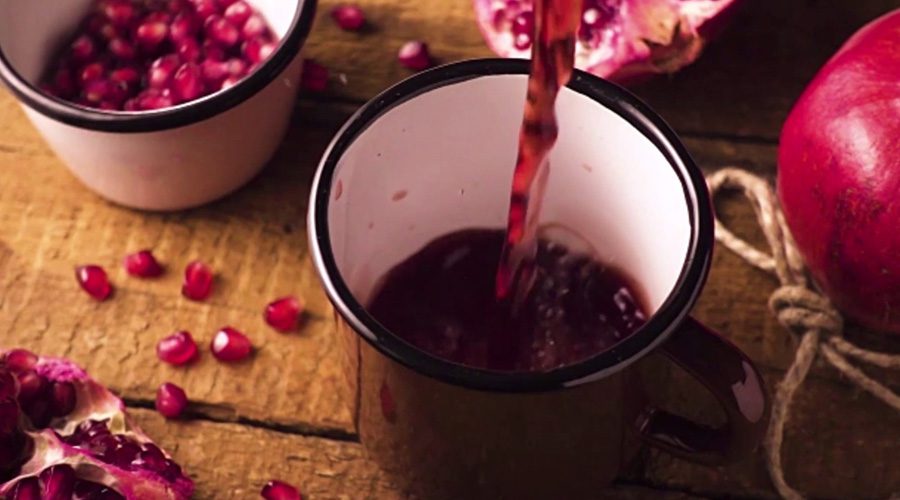7 Drinks for Lowering Blood Pressure
- Tomato juice
- Beet juice
- Prune juice
- Pomegranate juice
- Berry juice
- Skim milk
- Tea
When blood pressure goes unchecked, it can lead to complications such as heart disease and stroke.
One of your first lines of defence against high blood pressure (hypertension) is your diet. Adopting a blood pressure-friendly diet may help keep your blood pressure within a healthy range without the side effects caused by medications.
In addition to certain foods that may help lower your blood pressure, some types of drinks may also be helpful.
In this article, we’ll take a deeper dive into 7 different types of drinks that may help lower your blood pressure.
1. Tomato juice
Growing evidence suggests that drinking one glass of tomato juice per day may promote heart health.
In a 2019 study, Japanese researchers evaluated the effects of drinking an average of one cup of tomato juice per day among participants with risk factors for heart disease.
They concluded that tomato juice improved both systolic and diastolic blood pressure, as well as LDL cholesterol.
Other recent studies have reported similar results among people with stage 1 hypertension and pregnant women.
To avoid unnecessary sodium, which can have the opposite effect on blood pressure, make sure to buy unsalted tomato juice.
2. Beet juice
Not only do these colourful, low-calorie vegetables contain a host of health-promoting vitamins, minerals, and plant compounds, but they may also help lower blood pressure.
A randomized pilot study from 2016 found that the juice of both raw and cooked beets improved blood pressure. However, raw beet juice had a greater impact on blood pressure.
Beets are rich in dietary nitrates, a compound known to have blood pressure-lowering effects. In a 2017 review, researchers found that these benefits were greater than the effects of nitrates alone.
In other words, other heart-friendly compounds are likely at play as well.
3. Prune juice
Prune juice has long been known to help alleviate constipation. But one of prune juice’s lesser-known health benefits is that it also lowers blood pressure.
This effect was reported in a 2010 study. Researchers compared three groups: one group ate three prunes per day, a second group ate six prunes per day, and a third group didn’t eat any prunes.
The researchers reported a significant reduction in blood pressure among people who ate a single dose of three prunes per day. People who ate six prunes per day experienced an additional reduction in systolic blood pressure.
Moreover, both three- and six-prune doses were found to also lower LDL cholesterol.
To take advantage of these effects, drink a glass of 100-percent prune juice or make your own by blending soaked prunes.
4. Pomegranate juice
Not only are pomegranates rich in nutrients such as folate and vitamin C, they also boast potent anti-inflammatory effects. It may come as no surprise, then, that pomegranate juice can contribute to a heart-healthy diet.
A 2016 literature review of eight randomised, controlled trials found that consuming pomegranate juice may help lower both systolic and diastolic blood pressure.
The effects on systolic blood pressure were independent of how long participants consumed pomegranate juice for and how much. The researchers recommend a dose of at least 240 ml to reduce diastolic blood pressure.
If you decide to add pomegranate juice to your diet, make sure it’s 100-percent juice with no added sugar.
5. Berry juice
Like pomegranates, berries — especially blueberries — are known for their antioxidant properties. However, less is known about their heart benefits.
A 2020 review reported that drinking cranberry or cherry juice may improve blood pressure. Another review published in Nature in 2016 found that consuming berries lowered both systolic blood pressure and LDL cholesterol.
In both cases, the researchers concluded that berries likely have cardiovascular benefits, but more research needs to be done to clarify their role in preventing and controlling heart disease.
If you opt for store-bought berry juice, make sure it doesn’t contain any added sugar.
6. Skim milk
Low-fat dairy products such as skim milk and yogurt are a key component of Dietary Strategies to Stop Hypertension, a science-based set of recommendations for preventing and treating high blood pressure.
In a 2011 literature review involving 45,000 adults, researchers examined the intake of low- and high-fat dairy products and how each affected blood pressure. They concluded that the consumption of low-fat milk was associated with a lower risk of high blood pressure.
Try to get two to three servings of low-fat milk products per day. You can drink a glass with your meals or add it to cereal or a smoothie. Steamed skim milk also makes a great addition to coffee.
7. Tea
When it comes to blood pressure, not all teas are created equal. A 2014 literature review of randomized controlled trials compared the effects of black and green tea consumption on blood pressure.
The researchers reported that long-term intake of both types of tea lowered both systolic and diastolic blood pressure.
However, the reduction in blood pressure was more significant for green tea.
What about coffee and alcohol?
Both coffee and alcohol can have varied effects on blood pressure.
Coffee
The effect of coffee on blood pressure has been a longstanding source of controversy in the scientific community.
Caffeine appears to create a temporary spike in blood pressure. But this effect may be less pronounced among regular coffee drinkers.
Some past research has suggested that long-term coffee consumption is associated with an increased risk of hypertension. But according to a 2017 literature review of 34 studies, moderate coffee consumption is safe, and perhaps even beneficial for both healthy people and those with high blood pressure.
If you’ve been diagnosed with hypertension, you probably don’t need to cut out coffee. With that said, it might not be the best time to start drinking coffee if you don’t already.
Alcohol
As with coffee, alcohol’s effect on blood pressure is complicated.
Moderate alcohol consumption — that’s one drink per day for women and two per day for men — was once thought to lower blood pressure.
But recent research suggests that even moderate drinking may poses risks to heart health.
In addition, blood pressure medications and alcohol don’t mix.
When it comes to alcohol consumption, the recommendation likely isn’t the same for everyone. If you have high blood pressure, talk to your doctor to find out what’s considered a safe level of alcohol consumption for you.
What else can help?
In addition to adding hypertension-lowering drinks to your diet, you can try the following to help lower your blood pressure:
- Get moving. Incorporating physical activity into your daily routine may be as effective at lowering blood pressure as some medications. The American Heart Association recommends 150 minutes per week of moderate activity or 75 minutes per week of vigorous activity for health benefits.
- Shed excess pounds. If you’re overweight or obese, your heart has to work harder to pump blood throughout your body. Even losing just a few pounds can help lower your blood pressure.
- Check out the DASH diet. The DASH diet, which was specially designed to prevent and treat hypertension, emphasizes unprocessed foods like fruits and vegetables, whole grains, and lean proteins.
- Quit smoking. Each cigarette you smoke triggers a short-term increase in your blood pressure. Over the long-term, tobacco use can harden your arteries which, in turn, can lead to high blood pressure.
- Limit stress. Chronic stress can contribute to high blood pressure. Avoid stressors when you can, and try to find healthy ways to manage your stress. While not all sources of stress can be eliminated, setting aside time for relaxation may help calm your mind and lower your blood pressure.
The bottom line
In addition to following a heart-healthy diet, some types of drinks may also be helpful when it comes to lowering your blood pressure.
According to research, several types of fruit and vegetable juices, as well as skim milk and green tea, may help to control your blood pressure, without any side effects.
If you’re concerned about your blood pressure, be sure to talk to your doctor about the best way to manage your blood pressure and heart health.

